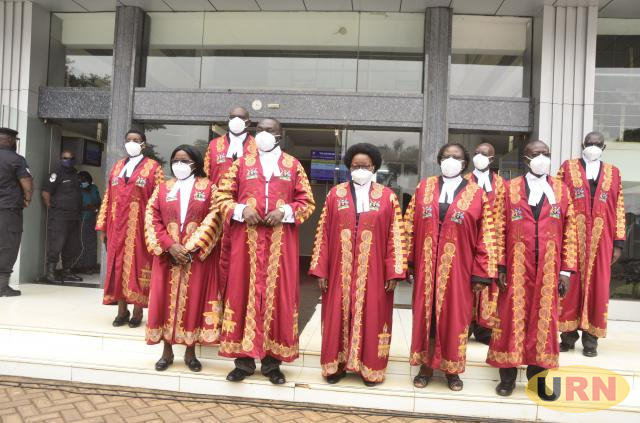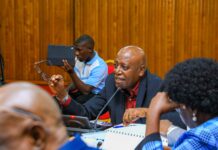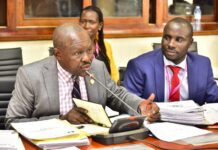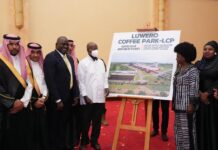By URN
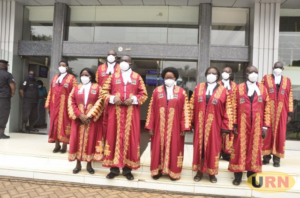 The Supreme Court has issued strict timelines for hearing the presidential election petition by the National Unity Platform-NUP President, Robert Kyagulanyi Ssentamu. The petition seeks to overturn the victory of the incumbent president, Yoweri Kaguta Museveni in the January 14, 2021 polls.
The Supreme Court has issued strict timelines for hearing the presidential election petition by the National Unity Platform-NUP President, Robert Kyagulanyi Ssentamu. The petition seeks to overturn the victory of the incumbent president, Yoweri Kaguta Museveni in the January 14, 2021 polls.
Kyagulanyi ran to the Supreme Court, saying the elections were marred by irregularities such as voter bribery, intimidation, arrests and violence that resulted in the death of his supporters. The matter came up for conferencing this morning to allow the parties including the petitioner, Museveni, the Electoral Commission and Attorney General to agree on the issues they want the nine-member panel of the Supreme Court Justices to determine.
However, Kyagulanyi’s lawyers led by Medard Lubega Sseggona informed the court that they were not ready to proceed. Sseggona informed the court that they had not met the respondents to frame the issues because some of their witnesses went missing until Wednesday evening when they received a call that they had been dumped in Mbarara city.
As a result, Sseggona asked for an adjournment, saying that they were unable to meet to frame the issues before they present them to the justices. He also informed that court that he wanted to file an application for discovery of key documents in the possession of the Electoral Commission, which are critical in determining the case. Sseggona told the court that they have already written to the Commission and are yet to receive a response.
However, the Attorney General William Byaruhanga objected to the prayers for adjournment on grounds that they had, had a discussion with the petitioner’s lawyers in the morning before appearing in court. He claimed that the petitioner’s lawyers pointed out their areas of concern, which they discussed and concluded so as to beat the deadline. In his ruling, the Chief Justice Owiny- Dollo noted that a presidential election petition must be determined expeditiously within the required time frame as provided for in the constitution to avoid a crisis.
As a result, he gave the petitioner up to February 14, 2021, to file all affidavits that he intends to use as evidence. He also gave the respondents up to February 20th to file their affidavits. He said that in case of a rejoinder, the petitioner will have up to February 23 to file any affidavits in reply Justice Owiny- Dollo directed all the parties to convene on February 24th for the conclusion of the pre-conferencing, saying if there is any other application it will also be made on that day.
He explained that once the pre-hearing conference is done, the court will proceed by way of written submissions, which he described as the major components of the hearing. He, therefore, gave the petitioner up to February 27th to file his written submissions to allow the respondents to respond by March 2nd 2021. He also said the petitioner will respond to any arising by March 4, 2021.
The parties will have between February 25th and 26th to cross-examine witnesses and tender whatever electronic evidence will be available. According to the Justices, on March 5th the parties will appear physically to strictly make oral submissions within 30 minutes each specifically highlighting the reasons why the case should be determined in their favour.
He warned the parties against bringing voluminous records, saying they should only present the material that they think is fit for the court. The Justices will retire on March 7th to 18th retire to write their summarized judgment. The Chief Justice, who warned social media users and the public against doubting their impartiality, said the Supreme Court Registry will be open even on weekends for purposes of the presidential election petition.
He has directed the Commission to provide all the necessary documents to Kyagulanyi’s lawyers, arguing that there is no reason as to why the petitioner should file for an application for discovery.

